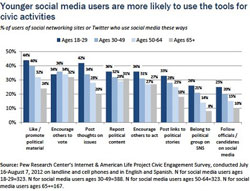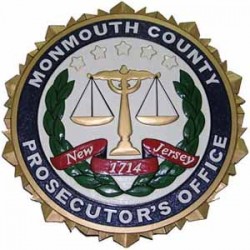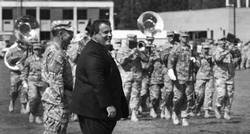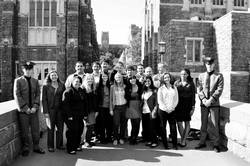For something so important to the country and its wellbeing, college students seem to lack the care and/or knowledge of why their democratic system is so important. They do not realize the impact of their vote and how it can make a difference. It isn’t just our vote matters, it is the message that that vote carries—it says “I am here” and “I care about our country’s future.” With the upcoming presidential election, it is a good idea to step back and reevaluate the ideals of our age group according to the US Census.
According to the Census, 46 percent of young adults vote in New Jersey elections. In 2012, the age group of 18-29 year olds voted at lower levels than any other age group nationally. That means that less than half of young are voting in any election. For such an opinionated demographic, they are not utilizing the tools available, such as voting, to get their points across.
On campus there is a lot of push to get students involved and aware of the elections, registering to vote, and pledging to vote. Monmouth holds on campus events, like Rock the Vote to keep students involved. Furthermore, the political science club hosts viewings for every debate with food and friends to have a great time and get informed on the election.
The University is also home to a polling institute, which was put into place to display public opinion on important state and national issues. The Monmouth University Polling Institute has established three core missions: The institute hopes to provide contract research services to policymakers in government and private organizations to assist with program planning and assessment, to collaborate with faculty and students to enhance research and training opportunities, and to monitor public opinion on current issue. With the University itself being so heavily involved and highly esteemed in New Jersey, it is a shame that the actual student body of the University is not as interested.
 It seems that students on campus are aware of voting and the potential candidates, but when it comes to going into detail with that, that’s where most lose interest. It’s a lot to watch debates and really educate yourself on every possible candidate and be a full time student. Furthermore, the debates can be a bit too cerebral for the common college student to comprehend, especially if that student has no interest and doesn’t really understand the political lingo or process.
It seems that students on campus are aware of voting and the potential candidates, but when it comes to going into detail with that, that’s where most lose interest. It’s a lot to watch debates and really educate yourself on every possible candidate and be a full time student. Furthermore, the debates can be a bit too cerebral for the common college student to comprehend, especially if that student has no interest and doesn’t really understand the political lingo or process.
Adjunct professor of political science and sociology, Professor Ryan Tetro, said, “Students should become educated on the issues of the upcoming presidential election because, regardless of the outcome, these issues will impact their lives either directly or indirectly.”
To the question of why it matters, Tetro said, “I admit that I sometimes struggle to explain why one vote does matter. However, being educated on the issues will at, at a minimum, give students the ability to understand how their lives, again either directly or indirectly, will be impacted by the issues. So, assuming arguendo, that their vote ‘doesn’t matter,’ the knowledge obtained by becoming educated on the issues will provide the ability to navigate the ultimate resolution, if any, of the issues addressed by the successful candidate.”
Junior English and education student, Maddie Arecchi, said, “I’m planning on voting in the next election, but right now I am not very informed so I’ll have to look on social media to see what the platforms are.” While social media is a wonderful platform to get involved with for the upcoming elections, it shouldn’t be our only outlet. It is great to laugh about the potential candidates and the like, but it is one thing to be aware and another to be involved.
Students that want to be involved with elections, will be; others will wait until the selection is narrowed down to just two candidates from each party to start to get involved.
Erin Comiskey, junior health studies student, said, “I believe there is a lack of political involvement on campus as many students are preoccupied with their studies. I understand why students do this, as this was my thinking prior to studying abroad to Australia for a semester. There, I realized that America’s politics have many repercussions to other nations, i.e. Australia. Thus, it was the cultural norm to talk politics at university.” However, Comiskey is involved in the upcoming election, “I am involved in the political process as I am registered to vote for the upcoming primaries and general election.”
Comiskey also comments on how we, as students, need to realize the impact of our involvement in politics. For her personally, Comiskey said, “As a person who is planning on joining the military, I find it crucial for me to be a part of the political process, as the next president will also be the next commander in chief, and will impact me directly. Additionally, as an aspiring healthcare professional, the healthcare reforms currently taking place will affect my career.”
Comiskey and Tetro explain that it is all about our futures. Many students are uninterested in politics and don’t think their votes and opinions matter, but that is not the case, according to Tetro. If students knowing that they have an impact isn’t convincing enough to get involved, Tetro jokes, “Isn’t fun to feel like the smartest person at the dinner table?”
PHOTO TAKEN by Jasmine Ramos




